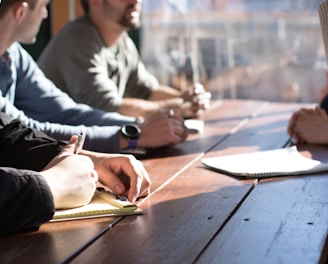Investigation Training Resources
Learning Package - 1 - Communication


10 Tips for Effective Communication in The Workplace
Ineffective workplace communication costs U.S. businesses $1.2 trillion annually, highlighting its importance for organizations. In law enforcement, strong communication skills are essential, particularly when presenting evidence in tribunals or court. Ensuring clarity, professionalism, and accuracy in communication can significantly impact outcomes.
Active Listening in Law Enforcement
Active listening is a skill that can be learned and is essential for building strong relationships and improving workplace effectiveness. It involves making a conscious effort to engage fully with a speaker and understand their true meaning. The five key steps to active listening are: paying attention, showing that you're listening, providing feedback, deferring judgment, and responding appropriately.
Empathy in Action: Winning Over Hostile Witnesses
Questioning witnesses is a critical aspect of any investigation, but dealing with hostile or uncooperative individuals can be challenging. Whether in simple or complex cases, understanding what occurred requires skillful navigation of different perspectives. By applying empathy, investigators can build rapport, reduce resistance, and extract valuable insights, even from the most difficult witnesses.
Six Ways to Build Rapport and Break the Ice
Building rapport can feel intimidating, especially if small talk isn’t your strength. However, effective rapport-building relies on authenticity and leveraging your personality to create genuine connections. Developing this skill can enhance communication, foster trust, and improve interactions in both professional and investigative settings.
Rapport Building in Investigations
Every investigation is unique, requiring a flexible approach tailored to the case, individuals involved, and surrounding context. Experienced investigators adapt their methods based on the type of matter, geographic and social factors, and other key elements. Building rapport is a crucial tool in this process, helping to establish trust and gather accurate information effectively.












